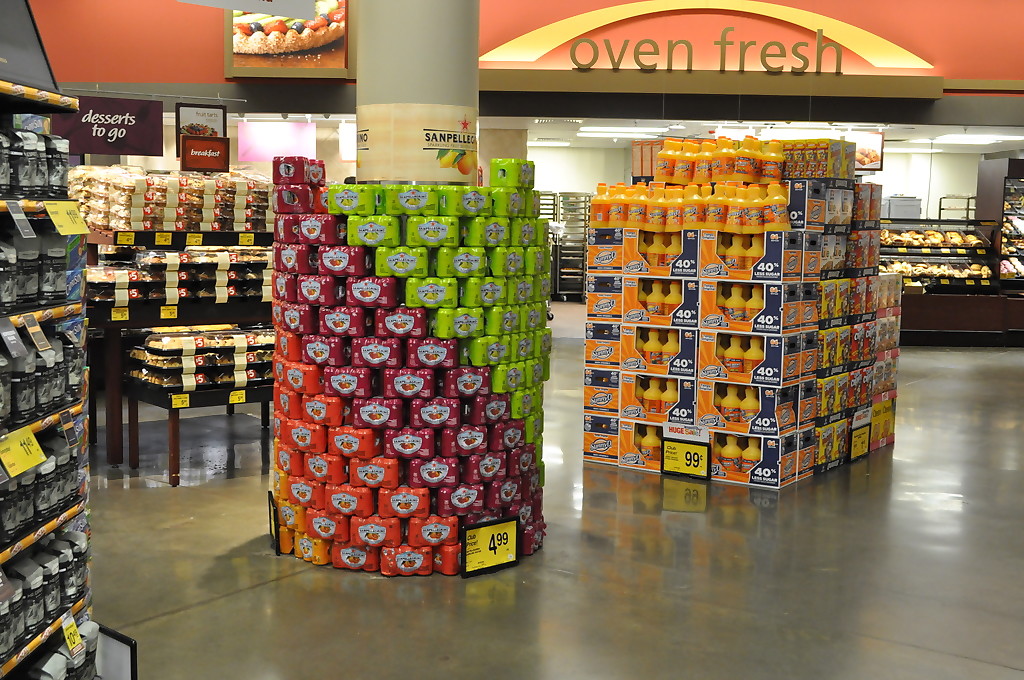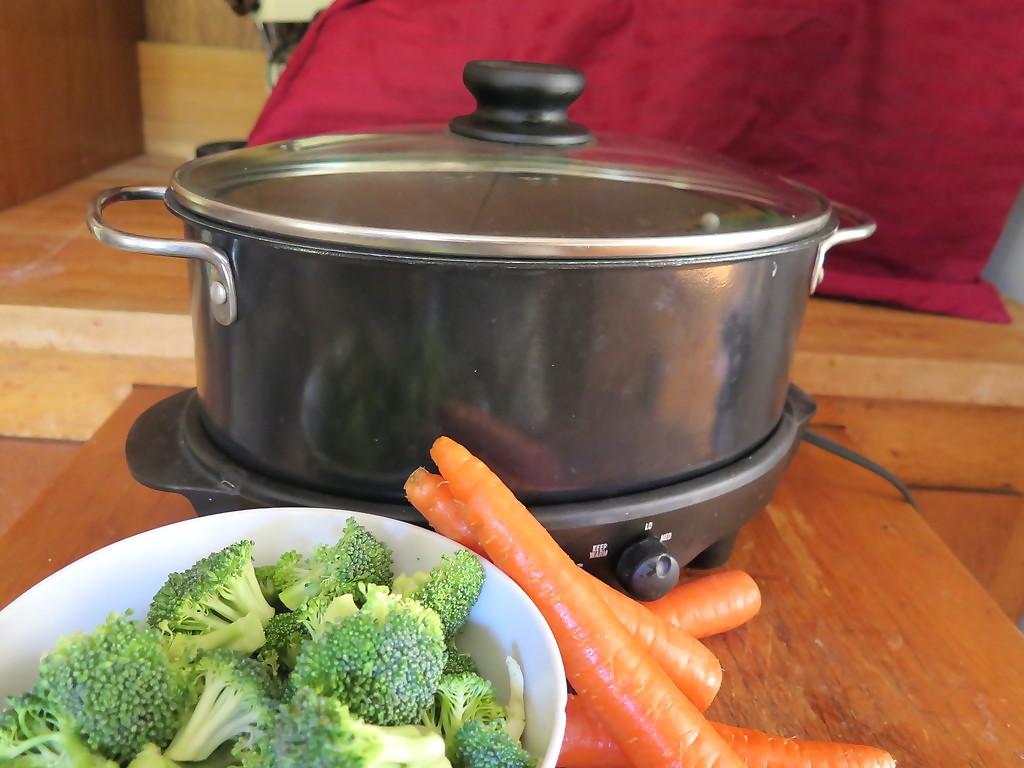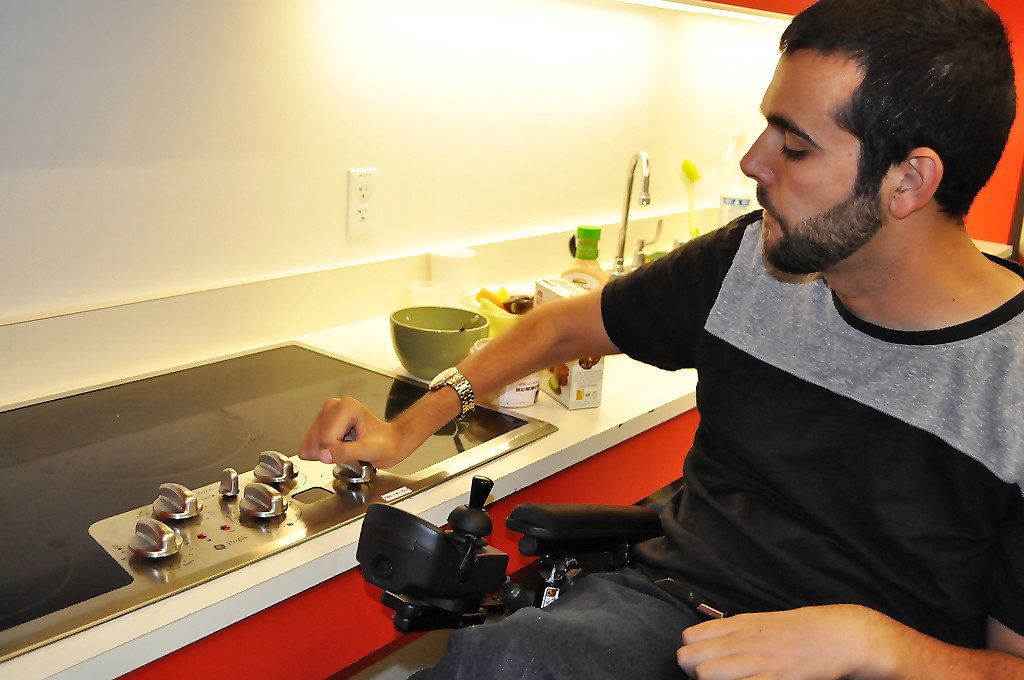When we start college, a lot of us have to learn how to cook because our parents or older family members have done it for us for the past eighteen years. It’s hard. We burn the bottom of our pans; we use too much salt; we set the smoke alarm off.
But some of us have other struggles too. We have low vision and can’t read the labels on the food we want to buy. Our wheelchairs can’t navigate through the crowded aisles and displays at the grocery store. We can’t hear timers that tell us when our food is ready. It’s tough to reach the appliances in our own kitchen. These obstacles affect a lot of people — in fact, about 20 percent of the American population has a disability.

Many stores are hard to navigate for people in wheelchairs or with low vision. | Photo by Elizabeth Layman
Not so fun food fact: America’s disability population is at especially high risk for food insecurity. That means this group of people worries daily that they will not have easy or socially acceptable access to the most basic requirements of good, nutritious food.
Whether you’re a college student with a disability or a college student without one, the easiest dinner option is often fast food or frozen meals. A Happy Meal or a Lean Cuisine dinner once in a while is fine, but when that’s all you eat, it takes a toll on your long-term health.

Using a crock pot for home-cooked meals is an easy alternative to fast food. | Photo Courtesy of Marsha Saxton
The World Institute on Disability (WID), a Berkeley-based nonprofit, encourages home cooking in the disability population of the Bay Area and beyond. For three years, they have been collecting tips, resources and recipes from people with disabilities and applicable websites (Spoon University, included!). Using only a handful of ingredients, the recipes have to be affordable, healthy, easy to make and of course, delicious!
In July 2015, WID took these tips, resources and recipes and created a fully accessible website called Disability FEAST. Inspired in part by Spoon University’s simplistic and user-friendly website style, Disability FEAST aims to prove that with just a few ingredients and some simple directions, anyone can cook.

Alex Ghenis, WID staff member, uses an accessible kitchen’s stove top. | Photo by Elizabeth Layman
The initial response to Disability FEAST has been overwhelmingly positive from users with and without disabilities, and WID is just getting started. They hope to add more information to the site based on user feedback, create an international section and offer in-person cooking classes and healthy-eating support groups for people with disabilities in the Bay Area.
Have a disability yourself? Know someone with a disability? Just curious about what it’s like to grocery shop, prep food or cook with a disability? Check out Disability FEAST and spread the word. Everyone deserves access to delicious, nutritious food, so let’s all do our part to make it happen.

